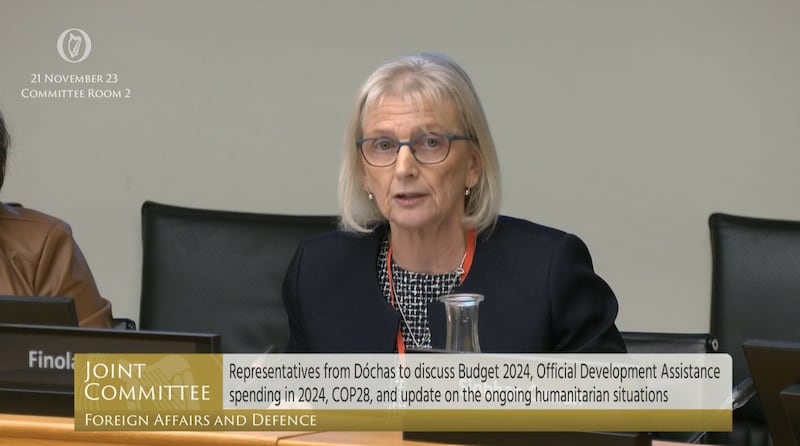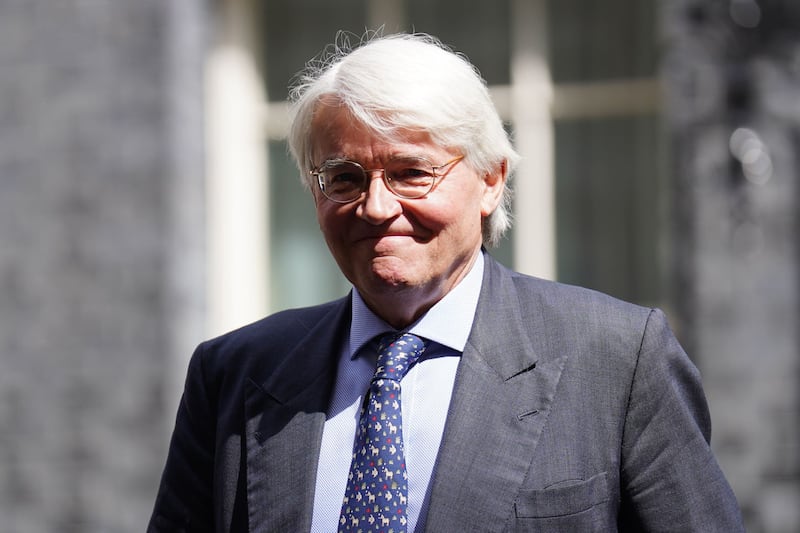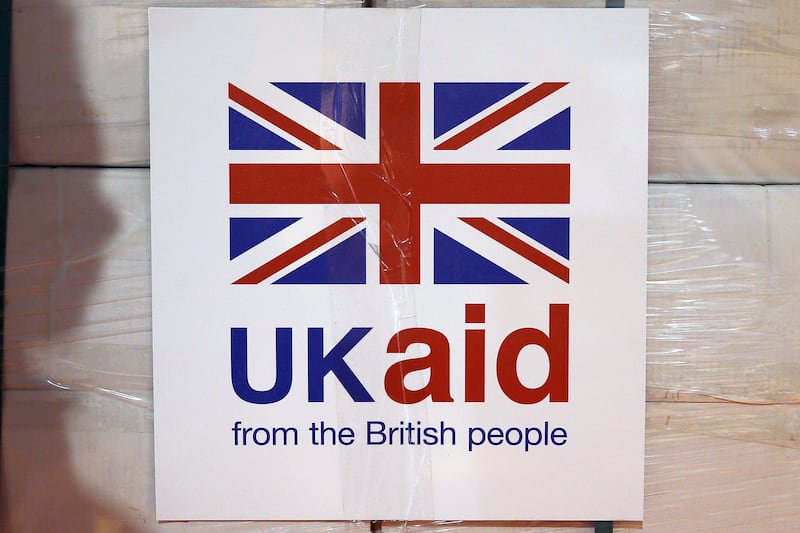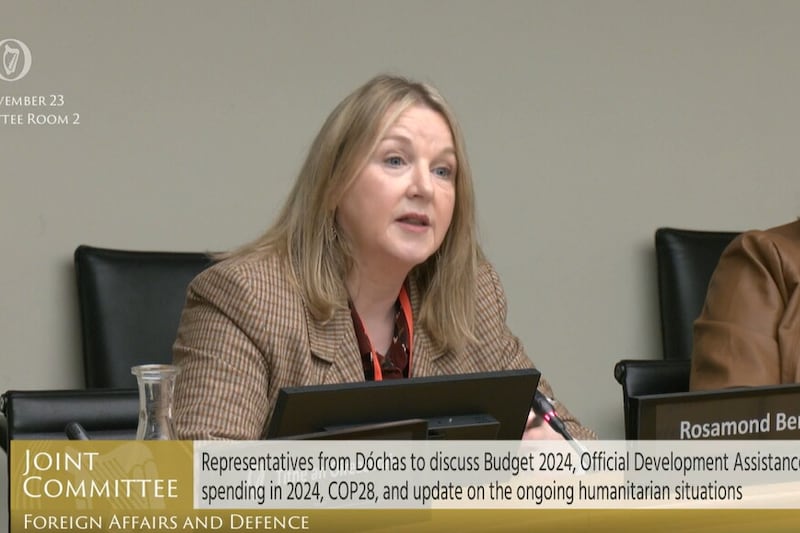Irish aid groups have said that “only a trickle” of humanitarian aid is getting into Gaza, as they warned of the need for a ceasefire.
A charity representative also said that the first thing they do each day is check if their staff lived through the night.
The Israeli bombardment of and missile strikes on the Gaza Strip have led to an unprecedented humanitarian crisis in the region, with food, water, fuel and medicines extremely limited.
The military operation was launched in response to an attack from Hamas militants, who killed 1,200 Israeli citizens and are thought to have kidnapped around 200 others, including Irish-Israeli citizen Emily Hand.
Representatives of Dochas, Trocaire and Concern addressed Irish parliamentarians and senators on Tuesday during a meeting of the Foreign Affairs and Defence Committee.
As well as highlighting the dire humanitarian conditions in Gaza, they also raised concerns about other conflicts in the world and the need to respond to the conditions created by climate change.
Rosamond Bennett, chief executive of Christian Aid and chair of Dochas, said that of the 11,000 people killed in Gaza in recent weeks, 160 children are being killed every day.
She said that more children had been killed in Gaza since October 7 than in all wars around the world since 2012.
She added that she remembers being shocked at the amount of rubble in the Gaza Strip when she visited the enclave in 2013 and cannot imagine how it is now, or how it could be rebuilt.
Ms Bennett said it is “very difficult” to get public funding for humanitarian crises in Yemen, Syria, and Sudan as those conflicts are not raised as often in the media, meaning that government funding is crucial in these cases.

Dominic MacSorley, humanitarian ambassador at Concern Worldwide, who was speaking via videolink from the Chad border with Sudan, said that there was a need to move on from Ireland focusing on one international crisis at a time.
Finola Finnan, deputy chief executive of Trocaire, said that there was only a “trickle of aid” going into Gaza as there was only one crossing open – the Rafah crossing at the Egyptian border.
She said there was very little aid going to the north of the region.
“Since October, we’ve had about 1,320 trucks have gone in, only 4% of the daily average volume prior to the current hostility, so there’s very little aid going in.
“At the moment, we’re waiting to scale up and we absolutely need a cessation of the bombardment on the population to be able to scale up to anything like we need.”
Ms Bennett added: “I was in Gaza in May, and the need is huge there. Even before this, about 80% of the population rely on humanitarian aid. And as Finola said, there are very few trucks going in compared to what there was previously.”






